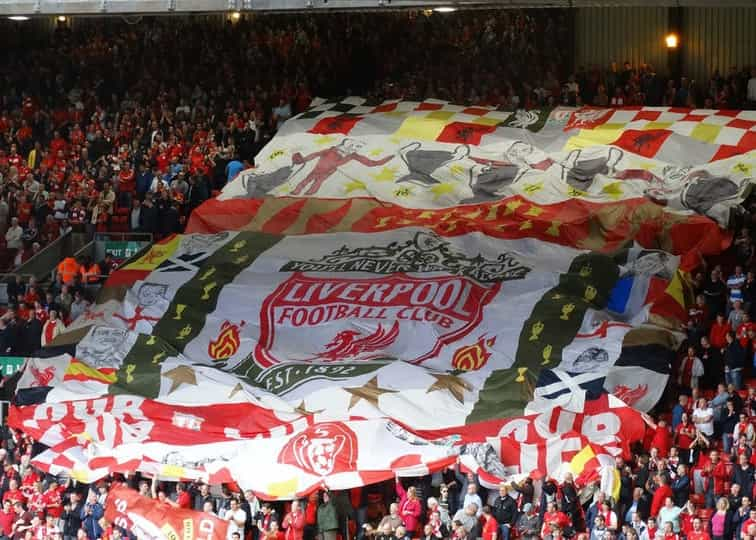
On Saturday night in Madrid, Liverpool F.C. and Tottenham Hotspur will contest the biggest football match of the season in the final of The Champions League. 150 to 200 million people around the world will watch to see which of these two giants of English football will take the European crown.
Of less interest to the watching millions but worthy of note to us marketing nerds is that the sponsor's names sitting on the front of the competing shirts will be major financial brands. They include Standard Chartered, the UK-based bank focused on Asia, Africa and The Middle East, and Hong Kong headquartered life assurance company AIA. Over £70m per season will be paid in sponsorship fees for the privilege, and both Standard Chartered and AIA have multi-season commitments.
The past and present of client hospitality
The global attraction of the English Premier League, and in particular its ability to reach huge audiences in Asia, is a clear pull for both these brands and helps understand the individual deals. What is of broader interest is the continuing appeal of major sports sponsorship to the financial services industry as a brand-building and business development tool.
In the early days of sports sponsorship, the appeal for financial firms was largely wrapped up in simple badging to provide large-scale brand visibility. It offered the opportunity to run extensive guest and hospitality programmes that helped financial firms spend valuable time with valuable clients.
Zoom forward to today and that landscape has changed. Financial crises, misconduct and performance issues mean customers, regulators and the media quite rightly question all aspects of public behaviour by financial firms. Equally the legal and regulatory environment has greatly reduced the role of corporate hospitality in financial services as far as clients and prospective clients go.
Who’s who in sports and finance
As well as football, financial services brands continue to buy into other top professional sports. HSBC support rugby, most notably the men’s and women’s World Sevens Series as well as golf at grass root and elite levels. NatWest have a long history in cricket, including being current sponsors of the England team.
Investec has also been involved in rugby and cricket and their high profile sponsorship of The Derby is part of the annual calendar. The Aviva Premiership has transitioned to The Gallagher Premiership. Meanwhile, on the watch of our own Martin McGovern, Standard Life Investments became the first Worldwide Partner of The Ryder Cup. They also became Principle Partner of The British and Irish Lions tour to New Zealand.
Creating a love affair to remember
So why does the love affair between financial services and sports endure? What constitutes a successful partnership in the modern era?
The attraction remains sport’s ability to deliver audiences. That might be huge and global, such as the Champions League. Or of a more specific demographic such as golf. Added to that, the “live” nature of a major sporting event is virtually unique in a media world of multi-channel, on-demand consumption. Mix in the emotional pull and stories attached to sport and it’s a rich dish to dine on for any marketer. However, it’s easy to be seduced by the excitement and glamour. So it’s essential for any firm to approach the topic through a cold set of parameters.
Clarity of objectives
For a bank, insurance company or asset manager, sports sponsorship should form part of a wider marketing and corporate communications programme. That’s rather than being seen as a stand-alone activity. Clarity of brand strategy and fit between the partners is essential. Will the sponsorship reach the right audience in a relevant way? Direct product sales are unlikely to be attributed to the sponsorship. However, it does aid conditions through awareness, warmth and engagement opportunities.
Paying the right price
Pricing sponsorship rights is notoriously difficult. Rights holders will lean heavily on projected media value, validated by third party research companies. Other factors will include how hot or cold the market is when the sponsorship asset becomes available. Media reported extensively that Six Nations rugby declined a renewal offer from RBS, only to subsequently accept a lower fee offer from Guinness as the market cooled around them. A developed view on how the sponsorship will be deployed will help the buyer to determine value and in this there is no substitute for experience.
Effective activation
This is where we have seen and will continue to see the greatest change in how financial organisations reap value from their sponsorship investments. If the sponsorship is rooted in the core brand strategy of the firm it will mean it can be stretched and deployed through an array of areas. These include advertising, social media programmes, employee engagement, sales support, corporate story-telling, community and fan involvement, media partnership and PR. The list goes on.
This requires the broadest organisational and business perspective, brand insight, marketing expertise as well as sponsorship affinity. Like elite sport itself, sponsorship is no place for amateurs.
If you are looking to develop a financial marketing strategy contact gigCMO today. Our team of Fractional CMO's, CEO whisperers and other Marketing Talent on Demand have the experience and knowledge necessary to create the right financial marketing strategy for you.



